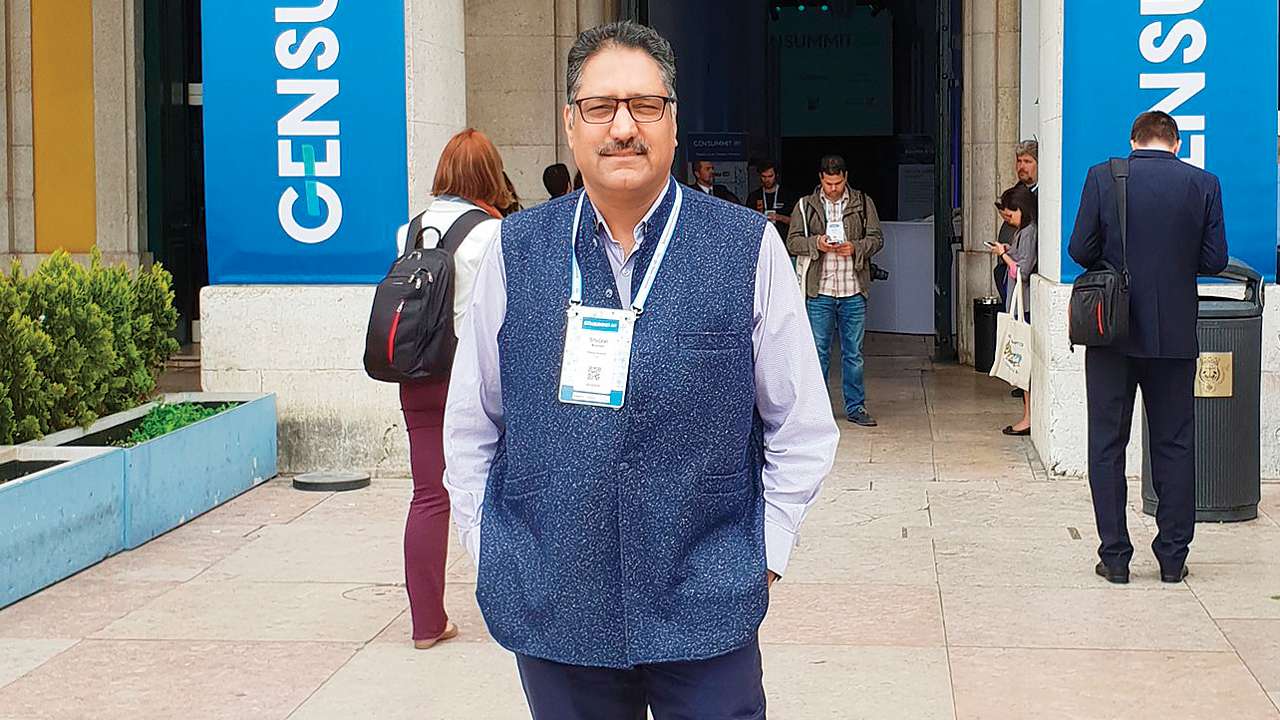
Two things, both Kashmir-related, transpired on the eve of Eid-ul-Fitr that disturbed the nation. The first was the assassination of Shujaat Bukhari, along with his police bodyguard, outside his office in Lal Chowk, right in the heart of Srinagar. Soon, national media was flashing pictures of the three alleged killers atop a motorcycle. Bukhari, editor of Rising Kashmir and former Kashmir correspondent of The Hindu, was widely mourned. Among the strongest condemnations came from Jammu and Kashmir Chief Minister Mehbooba Mufti: “The scourge of terror has reared its ugly head … I strongly condemn this act of mindless violence.” She lamented that “Terrorism has hit a new low with Bukhari’s killing” and urged that “We must unite against forces seeking to undermine our attempts to restore peace.”
Union Home Minister Rajnath Singh tweeted, “The killing of Rising Kashmir editor, Shujaat Bukhari, is an act of cowardice. It is an attempt to silence the saner voices of Kashmir. He was a courageous and fearless journalist. Extremely shocked & pained at his death.” Ironically, both Mehbooba Mufti and Rajnath Singh were seen as advocates of the “unilateral ceasefire” by the Government forces against the terrorists during the Muslim holy month of Ramazan. “Justice will be done,” Mufti said, but one can only wonder how.
Bukhari’s media friends, understandably, also reacted with outrage and horror. The strongest of these reactions came from senior journalist Barkha Dutt who, minutes after the news of Bukhari’s slaying, thundered, “Twitter fundamentalists … Shame on you and Shame on those fulminating prime time hate mongers. And most of all I wish Hell to those who did this to Shujaat Bukhari.” Again, wishing hell as the fitting recompense for the assassins smacks of delusional fantasies of poetic, if not theological, justice. Instead, many might advocate strategic and pragmatic measures on the ground.
In an article in a leading US daily, Dutt wrote that the killing underscored that “it is more dangerous to be a journalist in India today than ever before.” Dutt has been in the forefront of those journalists who claim that the freedom of the press in India is under threat under Prime Minister Narendra Modi. No surprise, then, that Dutt used the occasion for her usual virtue signalling: “Journalists who are the most vulnerable today are the ones who have rejected ideological labels and have held on to the importance of nuance and complexity.” I wonder how many in India see Dutt in the glorious light of neutrality and nuance that she basks in. Dutt does not mention the many special privileges that journalists enjoyed in the previous regime, including junkets aboard in the Prime Minister’s jet, all of which have been stopped by the Modi government.
To return to Bukhari’s tragic slaughter, nil nisi bonum – never speak ill of the dead, one was brought up to believe. Yet, one cannot help asking why, if Bukhari was such a strong advocate of the freedom of the press, he mounted a criminal defamation charge against fellow journalist and activist, Madhu Kishwar, who is the editor of Manushi, India’s leading feminist magazine. Kishwar had accused Bukhari and his paper of being “pro-Pak” and “pro-secessionist.” She claimed that “he is a favourite of the Leftists and he pretends to be a defender of human rights -- though only of terrorists!”
Perhaps, the key contention in the criminal defamation charge was that Bukhari, in Kishwar’s own words, “takes money from government agencies — both state and central government, yet he parrots the Pakistani script.” When overnight non-bailable warrants were issued against Kishwar by the Chief Judicial Magistrate, Srinagar, neither Dutt nor other champions of freedom of expression, defended Kishwar.
The other Kashmir-related piece of news was the 49-page report on Kashmir released by the controversial UN High Commissioner for Human Rights, Zeid Ra’ad Al Hussein. When it comes to the freedom of the press, Al Hussein has consistently voted in the UN in support of blasphemy laws. In over 50 countries, such laws severely punish, sometimes with death, those who write against religions of the book such as Islam, besides harshly curtailing the freedom of the press.
Widely perceived as anti-India, the first such report by the UN on human rights in Kashmir, accused Indian security forces of using “excessive force” against rioters and protesters. Not surprisingly, Ministry of External Affairs spokesperson Raveesh Kumar rejected the report as “fallacious, tendentious and motivated.” One cannot help wondering along with Kumar why the report doesn’t also condemn terrorism, “the most egregious violation of human rights,” while blaming the Indian state.
Unfortunately, this Eid, when it comes to Kashmir, there’s little to cheer either with regards to the freedom of the press or the cessation of hostilities in the Valley.
The author is a poet and professor at JNU. Views expressed are personal.